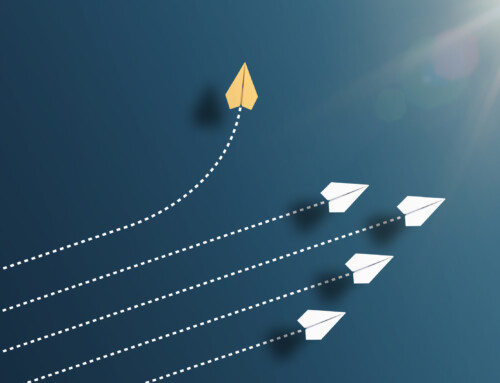The change management profession is coming into its own. We are recognized as vital to successful change initiatives and an important contributor to business growth and endurance. We are formalizing and getting certified. Let’s not close ranks just yet.
Let’s Go Against History
History is filled with examples of professions that create a watershed in order to keep the bar high and ensure that nonmembers are kept below the entry point using new terminology, acronyms, and associations among their techniques. Let’s take some of our own teaching to heart, building an inclusive discipline that opens us to new ideas from other professions whose insights, findings, and contributions can help keep the content and practices of our profession evergreen. This article strives to start this process by featuring a discipline and association whose thinking can broaden ours and contribute to more effective ways of transforming organizations.
Ethnography is a body of thinking that complements and contributes to our own.
Ethnographers systematically study people and cultural phenomena primarily through observations from the point of view of a study’s subjects. EPIC, Ethnographic Praxis in Industry Conference, is an association of individuals involved in the practical application of ethnography—bringing to life principles and theories related to culture and human behavior that help to build business value. Founded as a conference in 2005, EPIC is “dedicated to providing practitioners, businesses, and partner organizations with access to the best practical ethnographic expertise from around the world.” EPIC’s founders, Ken Anderson and Tracey Lovejoy, wanted to establish a conference that was not discipline-specific and not connected to a methodology, but one that brought together like-minded individuals (both academics and practitioners) at the junction of theory and practice who have the common goal of business innovation. EPIC members and participants are all practitioners from multiple disciplines driven to use ethnographic principles to drive innovation and create business value.
Ethnography was not always seen as immediately relevant to the business world, a situation not dissimilar to change management prior to the 1980’s. Like the community who gathered at the first ACMP Global conference, people who came to the first EPIC Conference believed they had, at last, found a professional home. This year marks the 10th anniversary of EPIC. The 2016 conference, being held at the University of Minnesota in late August, carries the theme of “Pathmaking –suitable for a profession that has, indeed, forged many new paths providing insights about people and their daily lives, bringing significant innovation and value to organizations ranging from technology companies to civic institutions.
Pathmaking as a Theme
Conference planners expect that the Pathmaking theme will help to emphasize “the power of anthropology and business in combination to create transformative innovation, growth and strategic success for companies, industries and communities
It may be easiest to think about ethnography and its value to business in the context of User Interface (UI) , User Experience (UX), and brand design—three realities in our marketing-centric society that are driven by cultural context and the human search for meaning.
Learning from Other Experts
Why should this conference matter to us as change management professionals? To start, our disciplines and the professions represented at the EPIC conference are all closely tied to business strategy, business growth and organizational transformation. Second, both of our disciplines have backgrounds steeped in the social sciences; we both employ similar methods and tools to provide organizations with a deeper understanding of human beings, whether at work, at home or at play. Third, the work of ethnographers incorporates “what matters to people in their everyday lives today and over time.” Our work purportedly does the same; ethnographers are involved at the very beginning of creating business value and change managers are involved at the implementation end.
If you do not think that, as change management practitioners, we have many commonalities with members of EPIC, you have only to read the Perspective article from February 17, 2016, “Organizational Culture and Change” by Kate Sieck (RAND Corporation) and Laura A. McNamara (Sandia National Laboratories) in which the curators challenge the “industrial” vein of organizational work to retreat from “the land of practice” into “praxis,” and return to asking compelling questions whose answers may provide a more powerful way to approach employees, organizations, organizational culture and organizational change.
What can we gain from listening to and reading the work of EPIC contributors? Sampling the conference program indicates the multidisciplinary nature of the gathering. Of special interest to change management professionals should be:
- Papers which have a session on Ethnography/Organizations and Change curated by Kate Sieck (RAND Corporation) & Laura McNamara (Sandia National Laboratories). One of the papers is entitled, “Cultural Change Management in Organizations from Competing Perspectives: Creating Dialogues among Ethnography, Anthropology, and Management Science” by Gladis Villegas of the Universidad de Medellin in Colombia, SA and Allen Batteau of Wayne State University in Indiana, USA.
- Tutorials, which are small group courses conducted by experts offering the opportunity for attendees to expand knowledge and skills.
- The Perspectives feature on the EPIC website contains entries that preview some of the content of the conference:
- May 25, 2016, “Applied Semiotics: Embracing Strategic Thinking and Fostering Innovation,” by Lucia Laurent-Neva, Visual Signo
- February 17, 2016, “Organizational Culture and Change,” by Kate Sieck (RAND Corporation) and Laura A. McNamara (Sandia National Laboratories);
- March 24, 2015, “Sensemaking in Organizations: Reflections on Karl Weick and Social Theory,” by Laura A. McNamara, Sandia National Laboratories
Getting to Know You
The language of EPIC is, in many instances, different from ours. They speak of curators, while we speak of moderators or authors; they speak of artifacts while we discuss signs and symbols—perhaps a nod to the “artifacts” of their culture studies. However, learning about alternative ways to see the content of our everyday work will help us become thoughtful and reflective practitioners rather than automatic executioners of purely programmatic activities. At the same time, there is an opportunity to share our knowledge and experiences, adding considerably to EPIC’s insights into behavior and human needs and helping them as they work through organizational change as an area that contributes to their overall understanding of human needs. EPIC, and ethnography itself, is definitely worth exploring and perhaps even joining.




